Quick Links
It’s that time of the year again, Plastic free July is here.
Are you ready? What does it involve? Where do I sign up? We are going to look at these and many other questions about the month of plastic free July.
Let’s start with a bit of history class first.
Plastic free July is a global movement that started back in 2011 in Western Australia, Perth. It is designed to raise awareness of single use plastic in our lives and challenge you to live without it for a month, with the hope to continue this healthy lifestyle. Rebecca Prince-Ruiz is the founder of the Plastic free foundation, an independent, not-for-profit organization established in 2017.
Plastic free July is the key initiative of the foundation that works towards a mission of seeing the world without plastic waste.
The core values of the plastic free foundation are:
- Honesty and integrity
- Inclusivity of people, ideas, visions, and approaches
- A focus on providing solutions
- Authenticity and collaboration
- The belief that small changes add up to a big difference
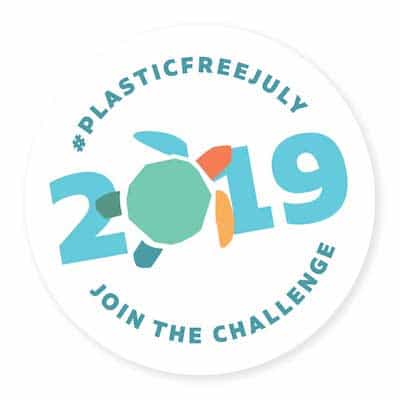
The impact
In July 2018 alone, 120 million people across the globe took part in the challenge across 177 countries.
- reduce their household waste on average by 76kg per household per year (7.6%)
- cut their use of recyclables (disposable packaging) on average by 28kg per household per year (5.6%)
- contribute to a total saving of 490 million kg of plastic waste each year
Why
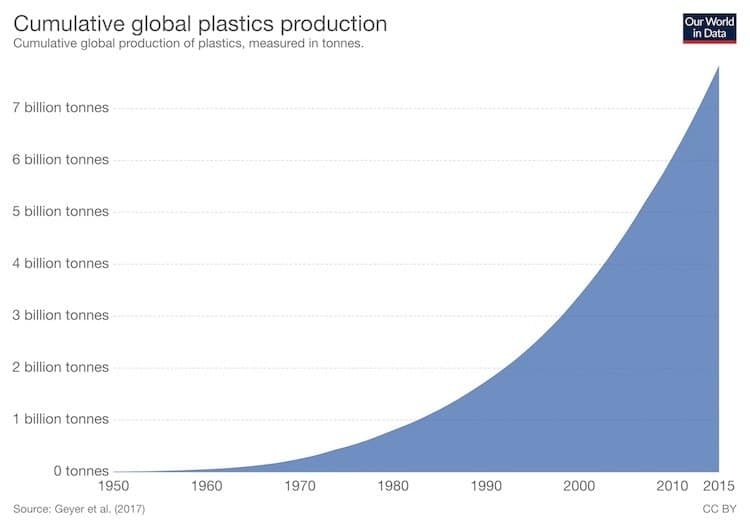
We have created so much plastic in the last 60 years. Now it is coming back to us in disgusting ways.
Microplastic is found in the food chain, on average a human eats the equivalent of a credit card of plastic per week.
Who
Who can participate in the plastic free July challenge?
In short, everyone can. Sign up here and let’s go and do the plastic free July together.
Do you feel like you are not prepared or you might be losing some of your convenience?
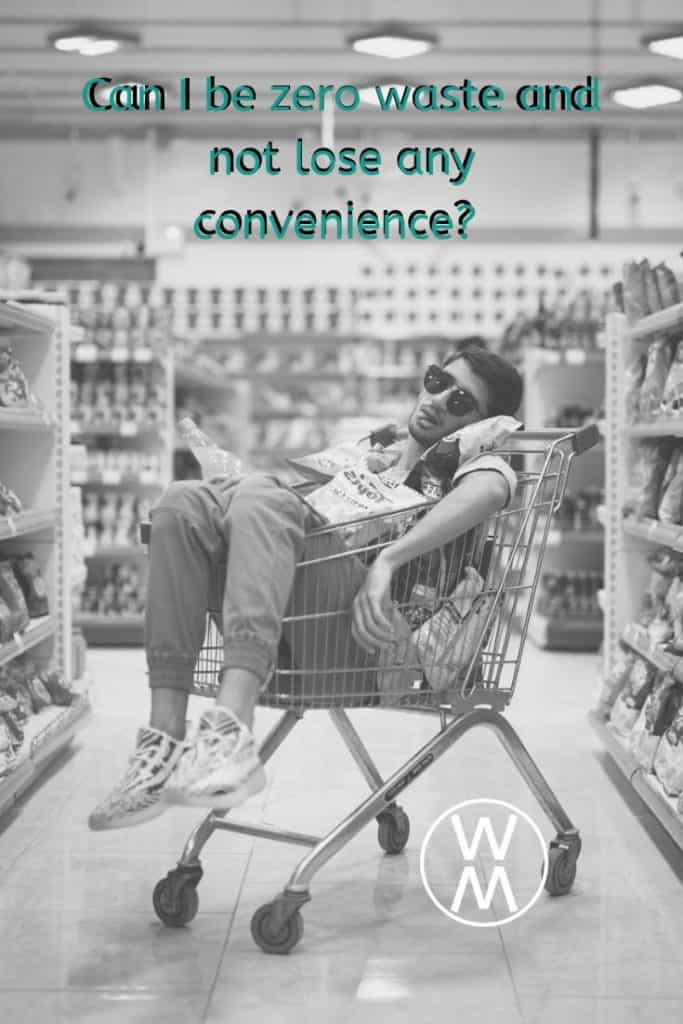
Let me assure you, while it might take a little bit of adjustment, once you have adopted these new steps it actually becomes easier and you even save money.
Ho do you save money by going zero waste?
Most organic products are expensive. I can buy deodorant in plastic packaging for $5 rather than $15 for the zero waste deodorant.
How am I saving money here?
While at first, it looks like a more expensive option, in the long run, you are saving money. Let me explain to you how.
The $5 deodorant looks cheaper at first sight but it comes with some flaws. First, you are going to put heavy metals and toxins on your skin. Remember the skin is the biggest organ in your body and will absorb this stuff. Those chemicals can and will most likely make you sick over time. Additionally, you just contributed to the throw-away society and not the circular economy. What at first looks like a harmless deodorant can, in the end, becomes a weapon of destruction for you and our wildlife.
You see it has a ripple effect. First, you put poison on your skin. Then you have to visit the doctor to give you medication and then you die. You might smell nice on the way out but was it worth it? So what might seem like a cheap option at first glance becomes a long list of pills and doctor visits and …
Dramatic right? Well, I am sure you have heard about plastic straw bans and plastic bag bans by now. All these single-use items are being confused with food.
Nearly every seabird in the world has plastic in its stomach and they are dying at a dramatic rate.
What does plastic free July have to do with this?
First, we become more aware of how we consume and change our habits to use less to no single-use items anymore. Something to always keep in my is the 5 Rs:
- Refuse items that you don’t need
- Reduce those you do
- Reuse what you can
- Recycle what’s left
- Rot (compost) everything else
Here are 16 steps to be prepared for plastic free July and go beyond.
1. Discover your trash.
To fix a problem we need to identify it. Go through your trash and find out what you throw away most. For us, it used to be packaging.
The solution is to change the supermarket and do more planned shopping, like visiting the farmers market once a week. Bring reusable bags and mesh bags for loose fruit and vegetables and make sure you have a couple of mason jars with you.
Sounds like too much planning ahead? Check out the zero waste challenge for easy tips.
2. Discover your products.
Take a look around your house and discover more products that are made from plastic and that you can potentially easily replace with the reusable version.
For instance
- Toothbrush = Bamboo toothbrush and floss
- Toothpaste = Tooth powder or tablets
- Shampoo bottles = Shampoo bars
- Plastic bottle = Reusable bottle
- Plastic razor = Adjustable safety razor
- Shaving cream from a can = Shaving soap
- Plastic Pens = Fountain Pen
Just to give you a few ideas!

Keep looking through your kitchen your office the kid’s room. But master the 3rd R, don’t just throw every plastic item away. See if you can reuse it. Perhaps you can do hand-downs with children’s toys or if you come across a lot of the same waste you might be able to send it to TerraCycle near you and they can recycle it into something that used to be unrecyclable.
3. Get yourself a zero waste kit.
Click hereWhen you are out and about it can be a little difficult to get your takeaway meal served in your open palm. Especially when it is fried, ouch. Be prepared. Get yourself a zero waste kit that consists of a reusable water bottle, a stainless steel food container, some cutlery, a coffee cup, and some shopping bags. Simple right? Just make sure you never leave the house without this.
4. Refuse single use plastic!
This is the biggest issue we are currently facing 1.000.000 drinking bottles are sold per minute.
Half a trillion disposable coffee cups are manufactured annually around the world; that’s over 70 disposable cups for every person on the planet.
Coffee cups are actually lined with a thin plastic layer which makes them uncompostable and leaches chemicals into your favorite beverage, yuk. Plastic straws just suck and plastic bags are super easy to replace.
Did you know they look like jellyfish to sea turtles, their favorite food? If they eat too many bags they starve because their stomach is full of plastic and not the nutrients they need to live. This goes for all wildlife.

5. Reduce plastic wrap/cling wrap.
Replace it with beeswax wraps. The natural antibacterial properties of beeswax not only protect your food but also let it breathe so it stays fresh longer. Unlike plastic which just suffocates the food. Other options are glass jars or metal containers – or just cover your food with a plate. Often my preferred lazy way?
6. Recycle/Repair something today.
I think this is so fun being a man and repairing items or just recycling old pallets for example. I love pallets, they are so versatile, and best they are free. You can make lights, bed bases, chairs, tables, boxes or even corner couches out of them. Sure you need to be a little skilled with tools but if you need any inspiration or help just hit me up.
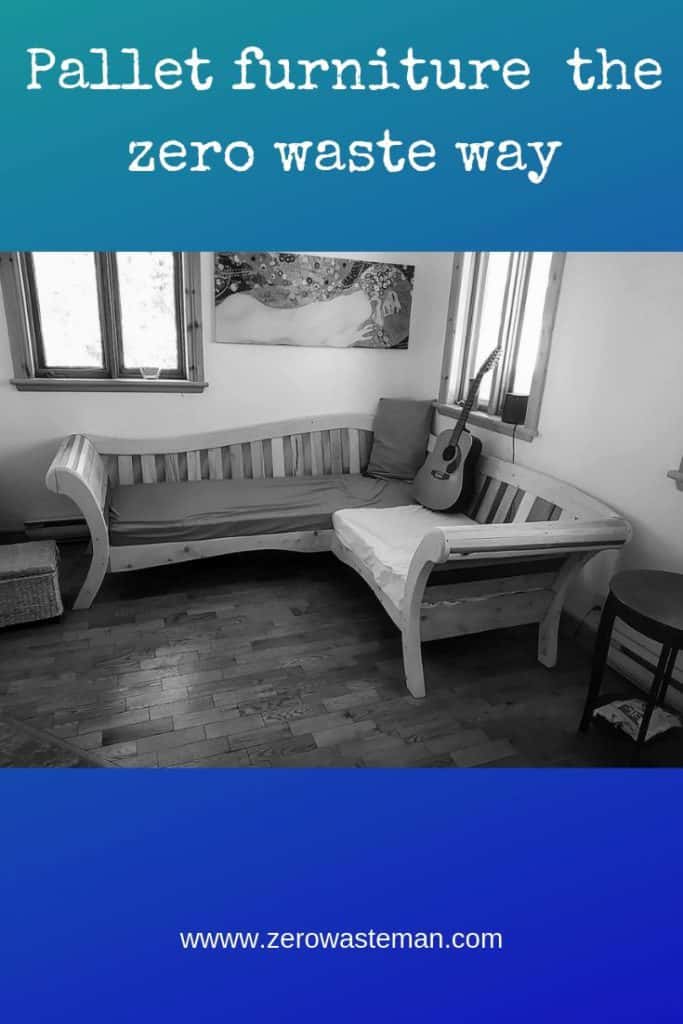
7. Support organizations
TerraCycle recycles unrecyclable items and repurposes them. 4Ocean help clean the oceans
8. Go zero waste in the toilet.
While this one might be a bit extreme for some of you, I decided to share this anyway. We all do it daily and most of us in the Western world wipe with paper. But did you know that we are flushing precious trees down the drain?
Not long ago, my fiance and I went to Thailand. Most places did have toilet paper but they always had either a bucket with water or a little bidet-like hose attached to the toilet. While it took some practice, in the end, we both prefer it much more than just paper.
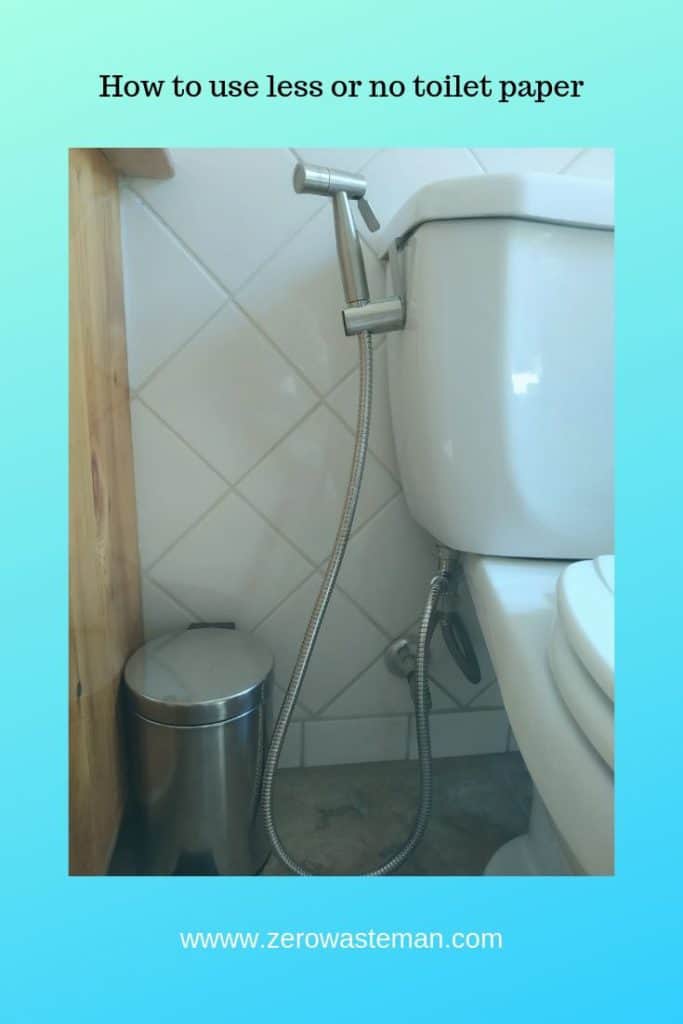
So if you are game, get yourself a bidet hose and reduce your toilet paper use dramatically. Alternatively, you can just opt for recycled toilet paper or our favourite: Who Gives A Crap!
9. Replace your shampoo bottles with soap bars.
Sure you can keep refilling your old shampoo bottles but why not cut it out completely. This whole shampoo thing is new to me as well and I couldn’t believe how foamy these bars get, seriously try it out.
10. Go to the farmers market.
The best way to support your community and eat local fresh organic produce is by going to the farmers market. It can also be a really fun way to make new friends and connect with the locals. Bonus: Your produce is fresher = will last longer = less packaging = money stays in the community = better for your health.
11. Say no to promotional items and stuff you don’t need.
I know it is a tough one for me and it doesn’t feel like you are making a big impact. It’s almost like a polite reflex. Sure, I grab that flyer of which I will never buy anything from just to get that guy out of my face. Learn to say “no thanks”, politely.
12. Avoid taking your receipts if you can just take a photo of it.
Did you know that receipts are made from the chemical bisphenol? BPA is used for thermal paper coatings because of its stability and heat-resistance. This allows inkless printing for receipts from cash registers. People who often are in contact with BPA coated receipts do have a higher level of BPA in their bodies than people with average contact.
13. Add reusable cotton bags to your zero waste kit.
Your backpack should now have a reusable bottle, coffee cup, a stainless steel food container and a reusable bag inside of it. How about you add some reusable cotton bags, for next time you go to the bakery you can store your bread in those. Plastic free!
14. Replace your paper towels with reusable cotton clothes.
Save the trees and reduce the use of plastic. Most of the time they are wrapped in plastic and belong to the single-use items. We just bought some cotton ones, sure at first they are more expensive but if you think longterm they start saving you money and the planet.
15. Make your coffee zero waste.
By using a mocha pot you can eliminate the little pods that started to fill up the landfill. There are however reusable pods that you can buy if you don’t want to completely neglect your coffee machine. Personally, I have been using the mocha pot for many years and I love the taste. If you buy your coffee in bulk just bring your cloth bag and voila you got zero waste coffee. Taste the best.
Related: Are coffee cups recylable?
16. Reconnect with the outdoors.
After almost a month of changing and adjusting it is time to reconnect with your friends and the outdoors. Remember to bring your zero waste backpack and just enjoy a nice little weekend camp. Perhaps you can even participate in a beach clean up in your area or create one yourself.
This is almost the end of the plastic free July preparation. I hope this can be of great value to you and your friends and please, if you do have any questions don’t hesitate to leave me a comment in the section below and don’t for get to subscribe to our newsletter with new tips and tricks weekly.

Good Morning Hendrik,
As usual, you hit the nail squarely on the head. Thank you for all the clever ideas to have a plastic-free July. Actually, we should try and reach a plastic-free year, year after year. I have also become a lot more conscious about this problem and do my bit. I am far from being perfect but getting better with time.
I have shared your post on FB and also in our closed group. We need posts like yours to come and realize that we have the responsibility to take care of our environment
Regards, Taetske
Thanks Taetske, I appreciate your kind words. Yes I know becoming completely zero waste is a big step and I haven’t even gotten there yet. But it’s is right, that by taking small steps to a more sustainable life we can have a big impact. Thanks for sharing.
Hi Hendrik,
Really interesting article!
I wasn’t actually aware that it is plastic free July. I specialise in testosterone production and I advise people to avoid plastic as much as possible, this is due to chemicals like BPA which are toxic and can lower your testosterone production,
Some great advice here on reducing your plastic usage, a few of them I hadn’t even thought of! I’ll be giving some of the a go!
Hey Nate, I was quite shocked about the effects that plastic can have on the body myself and I am glad that we have plenty of alternatives. I now keep my food in stainless steel containers or wrapped in beeswax. No more Tupper ware 🙂 I am glad you got some more ideas out of this. Keep it up.
Wow this was very informative. I had no idea this was such a movement and so many people participated in 2018. Sometimes we go through life not thinking about the environment and our purchases of plastics is an example of that.
I have noticed that we go for convenience and cheap prices rather than thinking about the effects of what we are buying on the economy as a whole.
I can understand your point about Thailand because I have visited the Philippines quite a few times and I have experienced the same 🙂
How can we go wrong if we take your advice here on how to be better care takers of the economy we live in. Thanks for sharing.
You are very welcome Nate. Happy plastic free July.